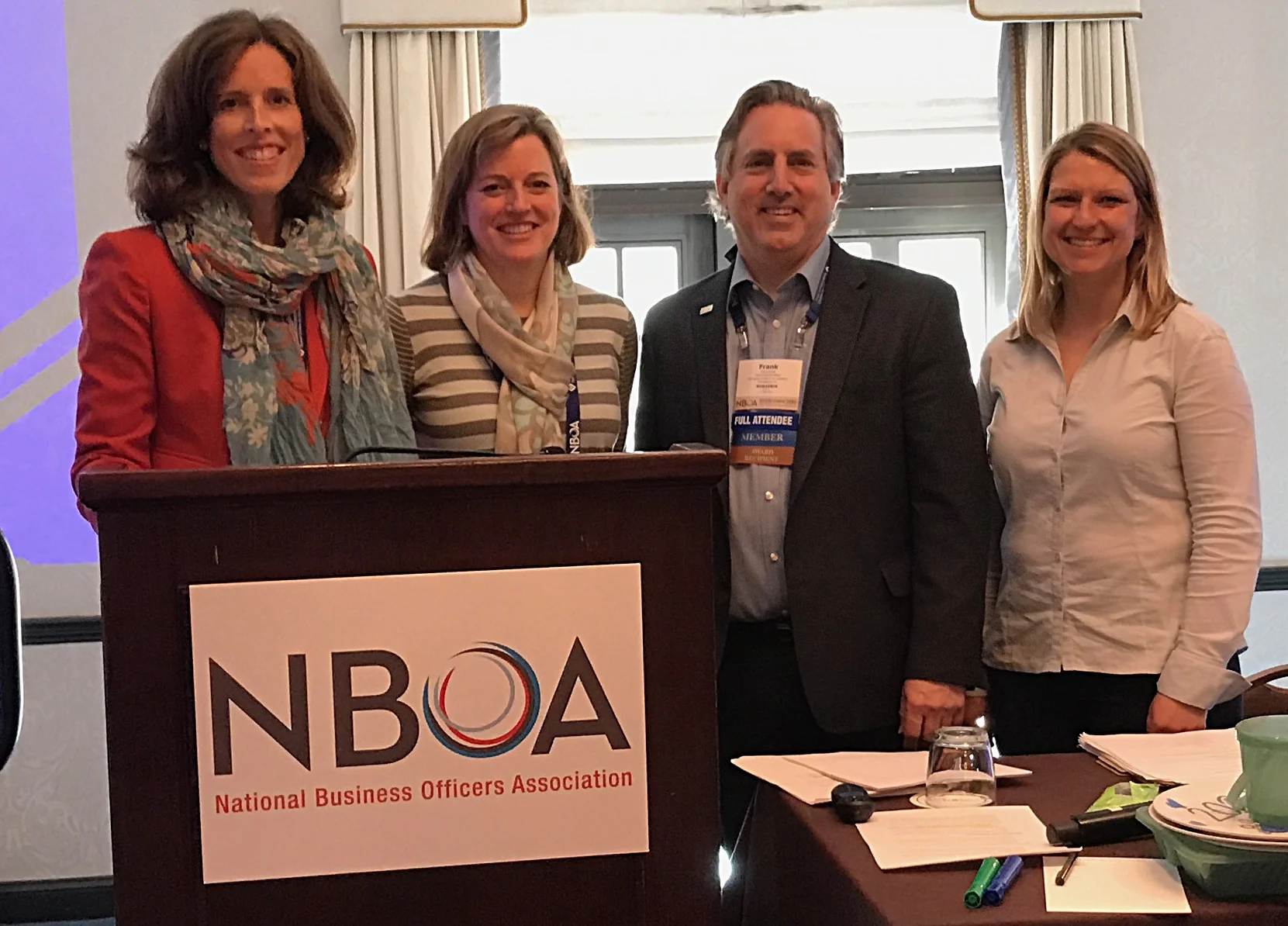Ancillae-Assumpta Academy composts all of its dining room waste with support from their students and faculty. Ancillae-Assumpta’s green initiatives include solar panels, school gardens, outdoor education, to name a few. However, the school decided to do even more. Boyer Sudduth Environmental Consultants lead facilitated meetings with the faculty and administration to identify sustainability goals. Food Service Coordinator Sarah Wade took on composting all food waste generated by students and staff.
Lower School Girls are Zero Waste Heroes
In 2012, the SCH Academy lower school for girls identified a problem: food waste and recyclables were too often getting tossed into the large grey trash bins in the cafeteria instead of being thoughtfully separated into the compost bucket and blue recycling bins. With support from the science teachers and faculty sustainability committee, the 2nd and 3rd grade students began a “design thinking” process to identify the specific problems with cafeteria waste and to brainstorm solutions.
Why Compost?
Red Clay Schools Lead the Nation in Energy Savings
Gardens, Water, & Food: The Hill School’s Sustainability Trifecta
PAISBOA Members Learn About Reducing Cafeteria Waste
On April 27, 2016 PAISBOA's Sustainability Affinity Group gathered to hear how to "Reduce your Environmental Footprint: One Bite at a Time" at Springside Chestnut Hill Academy (SCH). Sustainability consultants Mary Ann Boyer and Anne Sudduth of Boyer Sudduth Environmental Consultants and SCH science teachers, Marianne Maloy and Carie Szalay, used SCH's zero waste initiative as a case study.
Wendy Turner: It Takes a Village to Be Green
How much of a difference can one teacher make? When it comes to environmental sustainability, Wendy Turner, a second grade teacher at Mt. Pleasant Elementary School, shows that one teacher can inspire the “greening” of a whole school. Turner’s leadership sparked enthusiastic support and hard work from her peers, students, parents and the school’s administration.
Way to Go SCH!
AFS Students Make a Difference with Non Profit Neighbors
Students will remember Abington Friends as a school where “place-based” education wasn’t just theory. Place-based education binds organizations and schools to collaborate on local causes. Over the years, AFS students worked with neighboring non-profits to become community stewards. Lower school science teacher, Rosanne Mistretta, stands at the hub of the school’s community partnerships. Walk into her classroom and you will see structures made from twigs and seeds when students built fairy houses, observational drawings and photos when they planted trees along a stream, and germinating seeds to be used by a local farm. All of these exemplify work students have done with community partners.
SCH Receives a Bronze Award from Eco-Schools USA
Springside Chestnut Hill Academy (SCH) was recently named a bronze-level Eco-School by the National Wildlife Federation’s Eco-Schools USA program which promotes environmental education, conserving natural resources and “greening” physical structures and grounds. With this award, SCH was recognized for its “healthy living” commitment to getting students outdoors and encouraging physical activity—factors that enhance students’ emotional well-being. Betty Ann Fish, SCH’s Chair of the Physical Education Department and a nationally recognized PE teacher, led the Eco Schools “Healthy Living” initiative with the help of the school’s Green Task Force, sustainability consultants Mary Ann Boyer and Anne Sudduth, and the school community.









